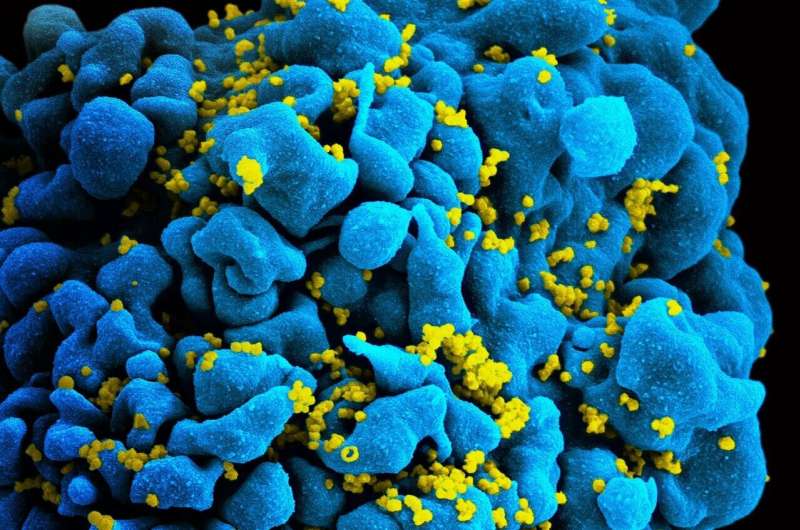Stigmatization prevents lessons from the HIV pandemic

The HIV pandemic hit the LGBTQI+ community, people who were already stigmatized, particularly early: This stigmatization prevented the lessons of the HIV pandemic from being adopted by broader parts of society—with consequences for dealing with the COVID 19 pandemic, argue researchers from the School of Public Health at Bielefeld University. In the journal Science, they show how society could learn better from the experiences of stigmatized communities. Their contribution is part of a project at the Research Institute Social Cohesion (FGZ) funded by the Federal Ministry of Education and Research.
"The consequence of stigmatization is to discredit the knowledge that certain people have acquired and the experiences they have gained," says Professor Dr. Oliver Razum. He heads the Department of Epidemiology and International Public Health at the School of Public Health. "This was the case during the HIV pandemic: because people from the LGBTQI+ community were stigmatized, their experiences with AIDS and the pandemic were devalued." LGBTQI+ stands for lesbian, gay, bisexual, trans, queer, and intersex.
This is why stigmatization results in many lessons from the HIV pandemic not reaching society. "The knowledge is there, but it's not accessible," says Dr. Yudit Namer, who co-authored the letter with Razum in the journal Science and is also a researcher in the same department. "This has implications for the COVID 19 pandemic. For example, with protective measures: HIV-affected communities have learned how to increase the acceptance of barrier methods—such as condoms. But these lessons were lost to broader society and had to be learned all over again when it came to wearing masks as a protective measure."
Moreover, stigmatization endangers societal cohesion: because it keeps social groups small or excluded, it helps to marginalize these groups—to push them to the edge—and thus perpetuate inequalities. The newly published letter by Namer and Razum is embedded in their project "Health Care for Marginalized Groups as an Indicator of Societal Cohesion," a sub-project of the Research Institute Social Cohesion (RISC).
The Federal Ministry of Education and Research supports the FGZ
The FGZ is an association of eleven universities and research institutes including Bielefeld University. Since 2020, it is being funded by the Federal Ministry of Education and Research for an initial period of four years. In their sub-project, Namer and Razum are investigating how different marginalized groups experience access to healthcare and how this strengthens or jeopardizes cohesion in society.
The ideas the researchers presented in Science were developed while preparing this project. "The collective experiences of marginalized groups are often overlooked, even in research. Both the HIV and COVID 19 pandemics show how important it is to include their perspectives explicitly in research," says Razum.
In order to learn from the experiences gained by the LGBTQI+ community during the HIV pandemic, the scientists propose using various research methods. These include, for example, digital "archives of survivorship" in which existing text or film material, but also interviews with those affected, are collected. In participatory action research, members of the affected community are even involved in studies as researchers themselves by developing their own research questions or conducting surveys.
Research must go hand in hand with combating stigmatization
Namer and Razum stress that this is not about demanding that marginalized groups should learn more from their experiences. "Instead, its the non-marginalized groups that need to learn the lessons from the experiences of those affected. Moreover, this can only be a first step, and must go hand in hand with combating marginalization and stigmatization," says Namer.
In other research projects, the scientists are also focusing on the experiences of marginalized groups. Razum is the spokesperson for the PH-LENS research group, which is using the example of the health of refugees to investigate broader health inequalities in Germany. The German Research Foundation (DFG) will continue to fund this research group until 2022.
"Our research serves as a magnifying glass: its goal is not just to learn about the experiences of marginalized groups—but also, to draw general conclusions about health and society from their experiences," Razum says.Pandemic policing undermines public health measures, disproportionately targets Black and minority ethnic communities
More information: Yudit Namer et al, Collective agency transforms societies, Science (2021). DOI: 10.1126/science.abl762
Journal information: Science
Provided by Bielefeld University
No comments:
Post a Comment